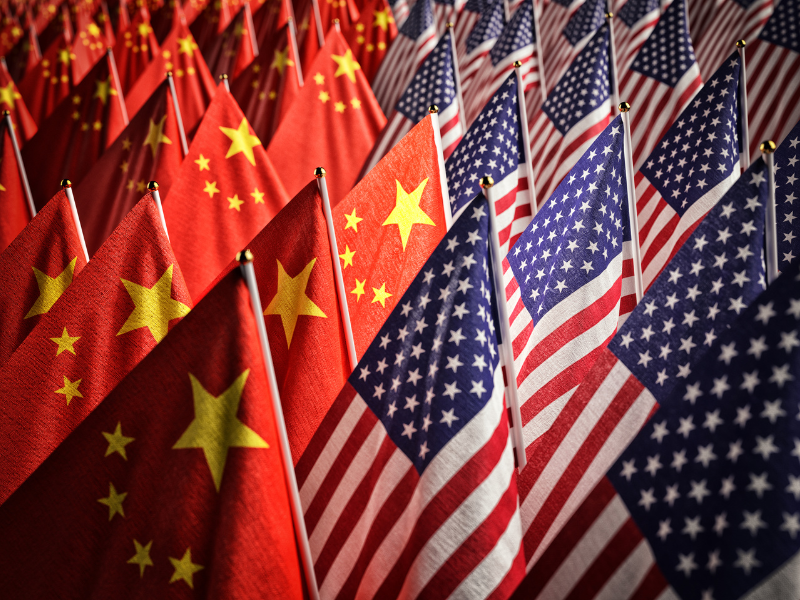President Barack Obama’s hostility to the free flow of information, open debate, and views contradicting his own appears to have no bounds.
The most recent evidence for this is Attorney General Loretta Lynch’s testimony before the Senate Judiciary Committee. She said the Justice Department has discussed pursuing civil action against companies, organizations, and individual scientists who continue to debate the question of whether humans are causing catastrophic climate change.
The FBI has been tasked with investigating participants in an ongoing scientific debate. This should shock civil libertarians and the general public alike.
Obama closed the book on questions about climate change even before he became president. For Obama, there is no debate: Human fossil fuel use is causing dangerous warming, warranting restrictions on the use of oil, natural gas, and coal. Evidently, once Obama has declared his opinion on a matter, further debate warrants investigation and possibly prosecution.
To be fair, it was not Obama or even Lynch who first broached the idea of prosecuting climate realists for exercising their free speech rights. That dishonor falls to Sen. Sheldon Whitehouse (D-RI), who in a May 2015 op-ed in the Washington Post argued the fossil fuel industry was collaborating with conservative think tanks to disseminate industry-funded research contradicting the scientific consensus on man-made climate change.
There are more than a few problems with Whitehouse’s argument and the administration’s efforts to silence debate with the threat of prosecution. First, there is the First Amendment. Obama, Lynch, and Whitehouse all swore an oath to uphold and defend the Constitution of the United States. The Constitution contains a bill of rights, the First Amendment of which is pretty clear: “Congress shall make no law … abridging the freedom of speech …”
Even if politically connected renewable power interests and influential environmental donors don’t like what oil companies, think tanks, and scientists have to say, the president, his administration, Congress, and the courts are supposed to defend their right to speak freely.
Attempting to wield against climate skeptics the Racketeer Influenced and Corrupt Organizations (RICO) Act, a law written to combat the Mafia and similar criminal gangs, presents a number of other difficulties for the administration. Foremost among them is the fact the truth is an absolute defense against charges of fraud. Lynch would have to prove “intent to defraud” by showing skeptical scientists were lying about what they actually believed.
This would prove well-nigh impossible since in 2015 alone, as documented by the German climate science site No Tricks Zone, approximately 250 peer-reviewed academic articles demonstrated nature plays a significant role in ongoing climate change, increasing carbon dioxide is improving plant growth and agricultural yields, and contrary to climate model projections, weather extremes are unlikely to increase due to climate change. These articles make clear, individually and collectively, the debate concerning the causes and consequences of climate change is still open and lively.
Debating an open scientific question is not fraud, but the scientific process in action.
I’m not really surprised the Obama administration is considering using the force of government to squelch climate debate. Disappointed, but not surprised.
When government can dictate what questions are open or closed in either the political or scientific sphere, the gulags can’t be far behind.
— H. Sterling Burnett
SOURCES: American Thinker and CNS News
IN THIS ISSUE …
Court: Climate emails public property … Contra UN IPCC, Himalayan glaciers stable … South Korea scraps carbon dioxide cuts … U.S. undermines Indian solar panel industry … Plankton does well under climate change
The Energy & Environment Legal Institute (EELI) won a legal victory in its effort to gain access to emails from two University of Arizona climate researchers. The University of Arizona had argued it had discretion over whether to release the emails, and chose not to release them. EELI had raised questions concerning the work of Jonathan Overpeck, Malcolm Hughes, and colleagues who claimed humans are causing dangerous climate change.
A trial judge agreed with the university, saying the university need not disclose 1,700 emails and other records. Appellate Judge Joseph Howard, writing for a unanimous state Court of Appeals, overturned the trial court’s ruling, saying it’s legally irrelevant what university officials thought was appropriate to disclose since everyone involved in the case acknowledges the emails are public records. Howard noted state law presumes all public records are subject to disclosure, with limited exceptions.
The ruling does not guarantee EELI will get all of the documents, but it makes it harder for the university to keep them hidden. The trial judge must now actually examine the records to determine whether making them public really would harm “the best interests of the state,” as the university claims. Howard, writing for the court, said Arizona law expresses an “open access policy toward public records” in order “to allow citizens to be informed about what their government is up to.”
SOURCE: Arizona Daily Sun
A new study challenges predictions the Tibetan Plateau glaciers, which feed Asia’s biggest rivers, will disappear by 2035 due to climate change. The findings are further evidence the 2007 Intergovernmental Panel on Climate Change (IPCC) report forecasting Himalayan glaciers would vanish by 2035, threatening the water supply of millions of Asians, was wrong. IPCC was forced to admit it lacked evidence for the claim in 2010.
A study in Global and Planetary Change found in the coming decades, water flows in the rivers will be stable or increase compared to the 1971–2000 period. Although the study’s authors predict temperatures will rise between 1° and 4°C in the region, they claim any glacial melt caused by increasing temperatures will be offset by an increase in precipitation, primarily snowfall. Specifically, they project precipitation will increase by 5 to 10 percent between 2011 and 2040, and by an additional 10 to 20 percent from 2040 to 2070.
Deliang Chen, a professor of earth sciences at the University of Gothenburg and lead author of the study, said, “Evaporation increases when the temperature is higher, and this evaporation feeds the increase in precipitation.
“Glacial melt is certainly going to increase …” continued Chen, noting, however, increased precipitation in the form of snow, which will be stored as ice in the glaciers, will partially offset glacier shrinkage. Overall, the study anticipates seasonal runoff will remain unchanged in the Yellow, Yangtze, Mekong, and Salween basins while water availability in the Indus irrigation basin will increase in the spring growing season.
SOURCE: SciDeveNet
South Korea announced in late February myriad climate policy changes, including abandoning its greenhouse gas emission target for 2020 and lifting a cap on Early Action Credits that observers say could boost the market’s supply by more than 40 million tons.
Former President Lee Myung-bak won international praise at the United Nations’ climate conference in Copenhagen in 2009 when he pledged to keep South Korea’s 2020 emissions at 20 percent below business-as-usual levels. But the current administration, led by President Park Geun-hye, has approved construction of a number of new coal-fired power plants and has made it clear South Korea would be unable to meet its 2020 emission reduction targets. Carbon Pulse quotes Joo-jin Kim, a lawyer with the ELPS consulting firm, saying, “The introduction of (planned) new coal plants after 2016 will represent a more than 65% increase in coal capacity, compared to Korea’s current levels.” Under the new plan, Korea’s emissions can continue to grow as more coal enters the energy mix without breaking any domestic laws.
SOURCE: Carbon Pulse
In a case brought by the United States against India, the World Trade Organization (WTO) has ruled India’s “buy local” rules for solar panels illegally discriminate against foreign manufacturers of solar panels and must be withdrawn.
President Barack Obama views the WTO ruling as a victory for international trade law. Christian Science Monitor quotes Obama as saying, “One area where there should be no debate is that once we have set up trade rules, people have to abide by them.” A press statement issued by U.S. Trade Representative Michael Froman notes the implications of WTO’s decision go beyond the United States’ particular complaint against India. “This is an important outcome,” Froman said, “not just as it applies to this case, but for the message it sends to other countries considering discriminatory ‘localization’ policies.”
Ironically, the Obama administration, which had pushed India to commit to deeper emission reductions than it ultimately agreed to at the Paris climate talks in December 2015, has now undercut what India claims is an essential policy to meet the carbon dioxide reduction goals it did agree to.
Environmentalists see the ruling as a setback for effective domestic and international climate action. “Something very wrong is going on when again and again we are seeing trade rules hamper governments’ ability to [tackle] climate change,” Ilana Solomon, director of the Sierra Club’s Responsible Trade Program, told Christian Science Monitor. “Climate policies are subservient to trade rules, and not the other way around.”
Sam Cossar-Gilbert, an organizer at Friends of the Earth International Economic Justice, said in a statement after WTO’s ruling, “The ink is barely dry on the UN Paris Climate agreement, but clearly trade still trumps real action on climate change.”
SOURCE: Christian Science Monitor
Recent research shows phytoplankton, the minuscule plant communities that serve as the base of the food pyramid in coastal waters and estuaries, will be more productive under a wide variety of projected climate change scenarios. Under conditions of increased carbon dioxide levels, phytoplankton more efficiently convert to growth the nutrients available to them. Nutrient uptake was 1.5 and 5 times higher for nitrate and phosphate, respectively, under future conditions, resulting in a tripling of the growth rate and producing larger phytoplankton diatoms, which improved phytoplankton communities’ abilities to cope with acidification.
The researchers conclude coastal waters in the future “will produce significant increases in primary production, mainly modulated by increases in larger UVR-resistant diatoms that could sequester significant carbon amounts …” Improved primary production should lead to improved fisheries and increase sequestration of carbon dioxide in the deep ocean.
SOURCE: CO2 Science
The Climate Change Weekly Newsletter has been moved to HeartlandDailyNews.com. Please check there for future updates!





